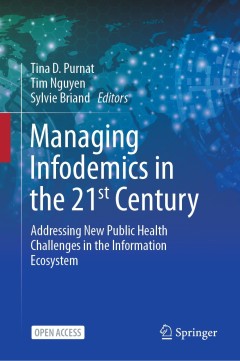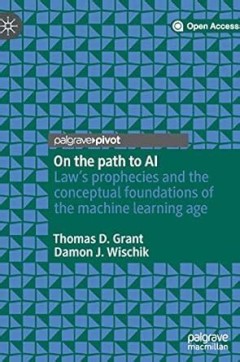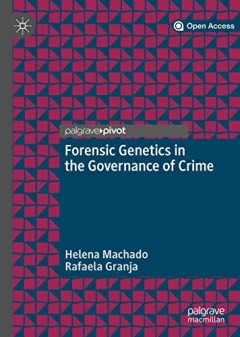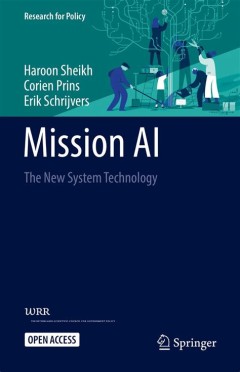Filter by

Expert Consensus in Science
This Open Access book shows how expert consensus pervades all areas of science. It explores, in particular, the role of consensus in establishing scientific truth, in guiding professional practice and policy and agreeing on what are acceptable scientific methodologies. For some scientific issues, a consensus forms spontaneously among scientists working on a topic, while for others, where the is…
- Edition
- 1
- ISBN/ISSN
- 9789819792221
- Collation
- XVII, 231 hlm; ill., lamp.,
- Series Title
- -
- Call Number
- -

Qualitätsmessung als Prisma = Forschungsevaluation in der Medizin
In diesem Open-Access-Sammelband werden verschiedene Leistungsdimensionen und Datenzugänge für Abbildung medizinischer Forschung empirisch dargestellt und diskutiert. Leitfragen sind dabei: Wie identifizieren wir Qualität in der medizinischen Forschung? Unter welchen Bedingungen lassen sich medizinische Themen bestmöglich beforschen, um das Patientenwohl und die öffentliche Gesundheit zu…
- Edition
- 1
- ISBN/ISSN
- 9783658436834
- Collation
- XXII, 153 hlm; ill., lamp.,
- Series Title
- -
- Call Number
- -

Re-presenting Research A Guide to Analyzing Popularization Strategies in Sci…
This open access book focuses on the textual features, or ‘strategies’, which form popularization discourse. In popularization discourse, research findings from academia are re-presented to make them noteworthy to society and influential for everyday life. Popularization involves recontextualization, or reimagination of findings in an everyday and newsworthy context, and reformulation, the …
- Edition
- 1
- ISBN/ISSN
- 978-3-031-28174-7
- Collation
- XI, 141
- Series Title
- -
- Call Number
- -

Managing Infodemics in the 21st Century Addressing New Public Health Challen…
This open access book on infodemic management reviews the current discussions about this evolving area of public health from a variety of perspectives. Infodemic management is an evidence-based practice underpinned by the science of infodemiology that offers guidance to better manage pandemic and epidemic risks and more quickly tackle new and resurgent health threats. Infodemic management ha…
- Edition
- 1
- ISBN/ISSN
- 978-3-031-27789-4
- Collation
- XVIII, 144
- Series Title
- -
- Call Number
- -

Akademische Subjektivierung im Dispositiv neoliberaler Gouvernementalität
In diesem Open-Access Buch wird die Transformation von traditionellen zu unternehmerischen Hochschulen unter einer neoliberalen Wissens- und Identitätspolitik untersucht. Vor dem Hintergrund einer Ökonomisierung der Gesellschaft geraten deutsche Hochschulen und ihre Angehörigen ab den 1990er Jahren zunehmend unter Druck, sich unternehmerisch-manageriale Denk- und Handlungsweisen anzueignen, …
- Edition
- 1
- ISBN/ISSN
- 9783658427474
- Collation
- XV, 351 hlm; ill., lamp.,
- Series Title
- -
- Call Number
- -

On the path to AI = Law’s prophecies and the conceptual foundations of the …
This open access book explores machine learning and its impact on how we make sense of the world. It does so by bringing together two ‘revolutions’ in a surprising analogy: the revolution of machine learning, which has placed computing on the path to artificial intelligence, and the revolution in thinking about the law that was spurred by Oliver Wendell Holmes Jr in the last two decades of …
- Edition
- 1
- ISBN/ISSN
- 9783030435820
- Collation
- XXII, 147 hlm; ill., lamp.,
- Series Title
- -
- Call Number
- -

Forensic Genetics in the Governance of Crime
This open access book uses a critical sociological perspective to explore contemporary ways of reformulating the governance of crime through genetics. Through the lens of scientific knowledge and genetic technology, Machado and Granja offer a unique perspective on current trends in crime governance. They explore the place and role of genetics in criminal justice systems, and show how classical …
- Edition
- 1
- ISBN/ISSN
- 9789811524295
- Collation
- IX, 114 hlm; ill., lamp.,
- Series Title
- -
- Call Number
- -

Societal Implications of Community-Oriented Policing and Technology
This Brief presents new approaches and innovative challenges to address bringing technology into community-oriented policing efforts. “Community-oriented policing” is an approach that encourages police to develop and maintain personal relationships with citizens and community organizations. By developing these partnerships, the goal is to enhance trust and legitimacy of police by the commun…
- Edition
- -
- ISBN/ISSN
- 978-3-319-89297-9
- Collation
- XII, 102
- Series Title
- SpringerBriefs in Criminology (BRIEFSCRIMINOL)
- Call Number
- -

Mission AI : The New System Technology
This open access book offers a strategic perspective on AI and the process of embedding it in society. After decades of research, Artificial Intelligence (AI) is now entering society at large. Due to its general purpose character, AI will change society in multiple, fundamental and unpredictable ways. Therefore, the Netherlands Scientific Council for Government Policy (WRR) characterizes AI…
- Edition
- 1
- ISBN/ISSN
- 9783031214486
- Collation
- XX, 410 hlm,: ill, lamp;
- Series Title
- -
- Call Number
- -

Smart Cities
This edited volume discusses the socioeconomic, environmental, and policy implications of smart cities. Written by international experts in energy economics and policy, the chapters present wide range of high quality theoretical and empirical studies at the nexus of social, entrepreneurial, governmental and ecological transformation. The book covers a wide range of topics, with a view towards p…
- Edition
- -
- ISBN/ISSN
- 978-3-031-35663-6
- Collation
- XV, 388
- Series Title
- -
- Call Number
- -
 Computer Science, Information & General Works
Computer Science, Information & General Works  Philosophy & Psychology
Philosophy & Psychology  Religion
Religion  Social Sciences
Social Sciences  Language
Language  Pure Science
Pure Science  Applied Sciences
Applied Sciences  Art & Recreation
Art & Recreation  Literature
Literature  History & Geography
History & Geography